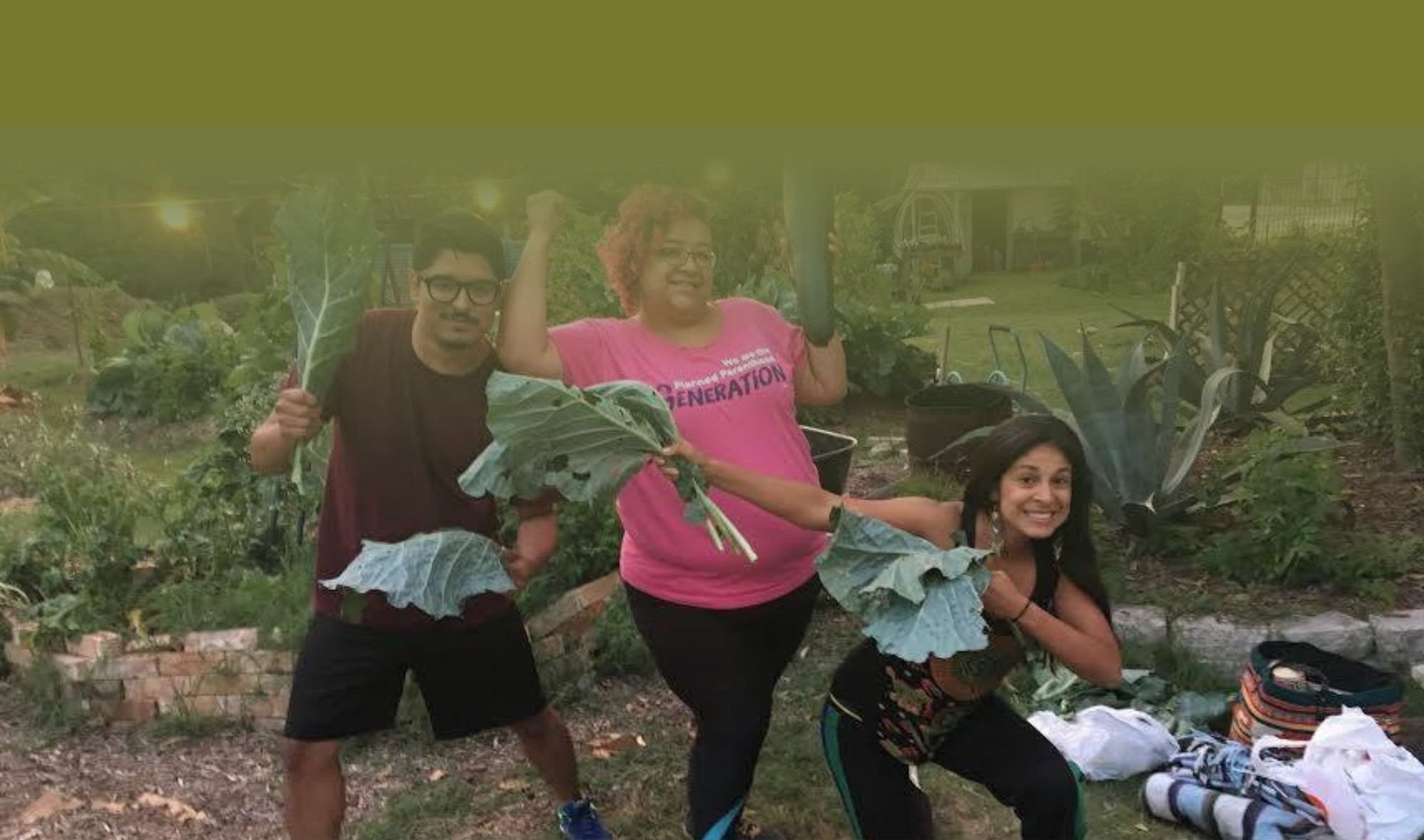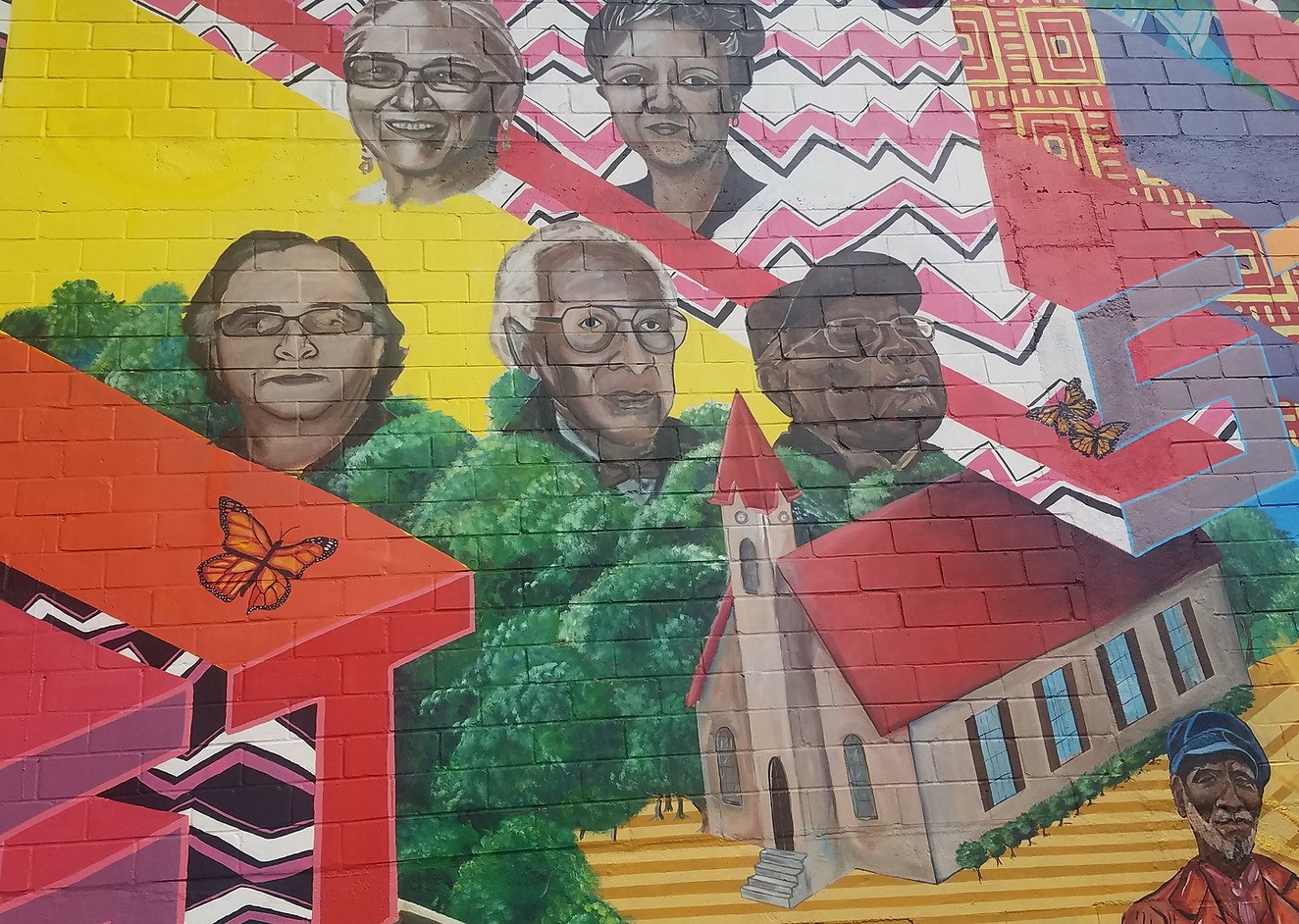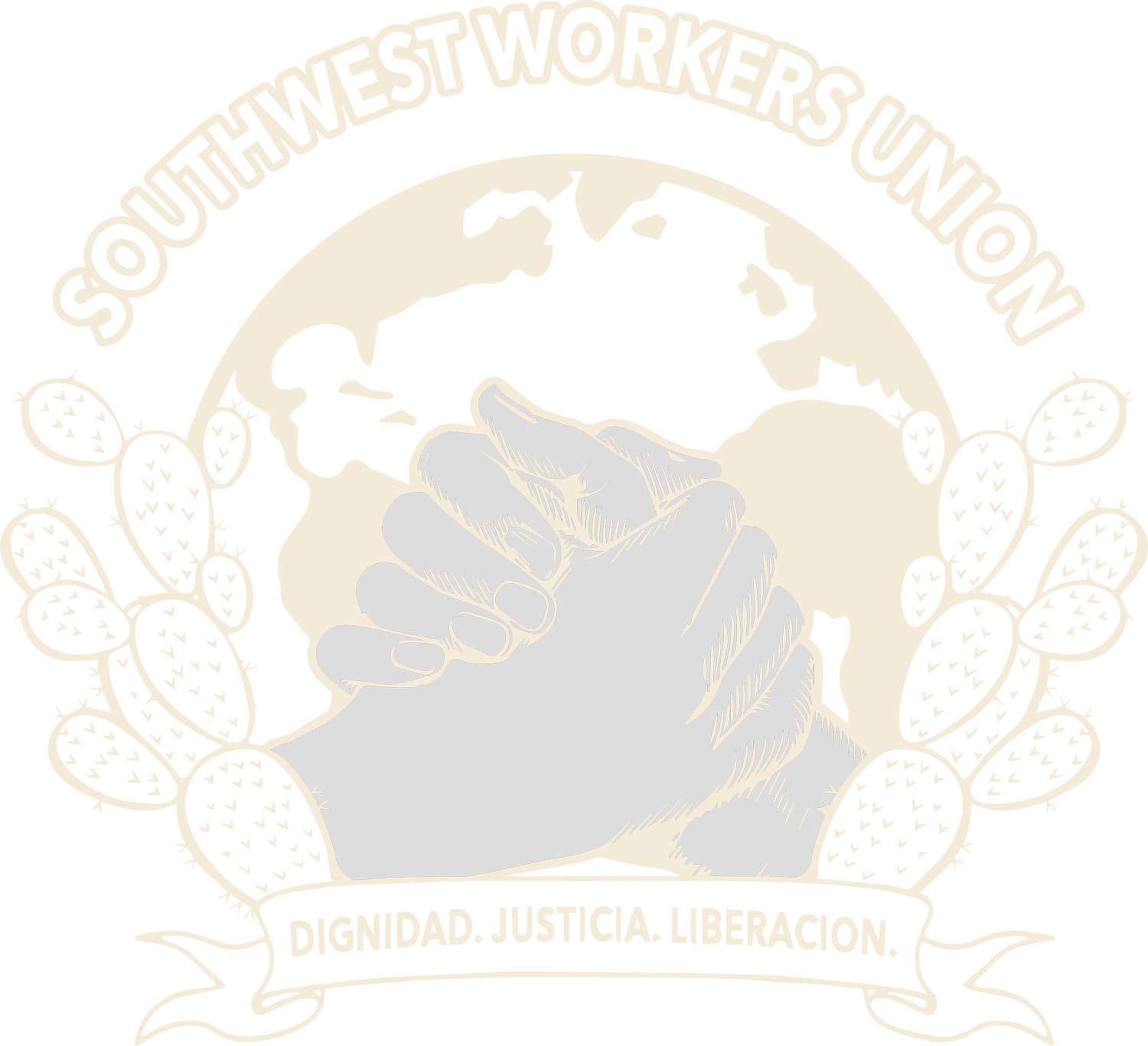
issues
ENVIRONMENTAL JUSTICE
Environmental Racism describes the reality that hazardous waste dumps, polluting industries, and military installations are disproportionately sited in low-income and people of color communities. The cumulative effects of multiple sources of contamination in these neighborhoods continue to damage our environment and health. Within this reality Environmental Justice means the process we take to free our land and bodies from pollution and create community solutions towards addressing the roots causes of pollution such as racism, sexism and capitalism.
HISTORIES
SWU organizes youth, neighborhood residents, and low-income workers to create healthy communities in San Antonio. SWU’s environmental justice and climate justice campaigns directly address the disparities in health, wealth, education, and political power in South Texas. Rooted in environmental justice principles, SWU develops inclusive and culturally appropriate solutions to build safe and healthy environments where our families live, work, learn and play.
What we do:
Toxic Tours
Leadership Development through Popular Education, Hands on Organizing Schools, and Direct Action
Build Community Experts to conduct Health Studies, Testing, and Reports
Direct Action
Engage neighborhoods in developing solutions that aliviate the problem and change it for the future generations
Roots of Change Community GardeN
(2006 - present)
In 2006, following a victory that defeated a proposed fuel storage tank farm on the Eastside, SWU broke ground on a brownfield site with the goal of creating a community garden. Known to have a disproportionately high number of polluting facilities, San Antonio’s Eastside was simultaneously known as a food desert — an area without adequate grocery stores to provide the community with good access to fresh produce. Since 2006, the Roots of Change community garden has become well established as a gardening cooperative, providing fresh produce, skill shares, and community interaction to the neighborhood. To date, the SWU complex has acquired over an acre of brownfield land with the long-term vision of transforming the once polluted soil into a self-sustaining urban farm.
More than a just community garden, Roots of Change helps grow politically conscious thought-leaders that shape the food justice movement. The garden is a teaching space built on the values of sustainability, empowerment, and healing for both community and the land. Our work informs our policy research and strategic partnerships, and has established us a leader in the local to national food policy debate.
The garden helps address issues of food insecurity by providing healthy, organic fruits and vegetables at low or no cost, as well as providing seedlings and trainings for members wanting to start their own garden. The Roots of Change community garden engages with community members annually through member work days, volunteer activities, trainings and events. Read the Food Insecurity Report

victories
Military Toxins at Kelly Air Force Base
In 1993, residents of North Kelly Gardens in San Antonio-a community plagued with health problems and situated across from 3 air force jet-fuel storage tanks-approached SWU for guidance.
The residents, like in most neighborhoods surrounding Kelly Air Force Base, were more than 95% low-income and predominantly Mexican-American, with a significant percentage of monolingual Spanish speakers. Over the last 8 decades, the activities of Kelly AFB poisoned the shallow groundwater under tens of thousands of residential homes and left the people and workers burdened with illnesses. First documented publicly in the 1980s, the activities of Kelly AFB caused extensive contamination of air, soil, groundwater and creeks, and created one of the largest groundwater plumes of chlorinated solvents that stretched over four square miles to the San Antonio River. Radioactive materials, Agent Orange, Agent Blue, volatile organic compounds and beryllium are found amongst the contaminants, many of which are known carcinogens.
SWU worked with community members to form the Committee for Environmental Justice Action (CEJA) and expose the impacts of environmental racism in the predominantly Latino community poisoned the shallow groundwater under tens of thousands of residential homes and left the people and workers burdened with illnesses.
In the following year, In 1995, Kelly AFB found itself on the closure list and the final transfer of the deed occurred on July 13, 2001 as the base set to privatize. Despite the façade and public image, the community remains contaminated and sick. A Health Symptom’s Study conducted by SWU-CEJA and the University of Texas Medical School from Galveston in 1996, indicated that 90% of the adults and ¾ of the children in North Kelly Gardens suffer from multiple illnesses. Cancer surveys by CWU-CEJA found that more than 1 in 4 households have one or more family member suffering from cancer. The Purple Cross campaign placed crosses in those family’s yards to remember the victims and provide a visual marker of the deadly impact of the contamination.
CEJA escalated a campaign to address the activities of Kelly Air Force Base that have poisoned the shallow groundwater under 60,000 working-class homes and left a toxic imprint on residents and workers burdened with multiple illnesses.
Online Archive Coming Soon with photos, video, reports and the health studies.
RE ROUTE UNION PACIFIC (2004 - 2007)
The piercing sound of the railroad is a daily reality for the citizens of San Antonio, especially on the southside where the crisscross of tracks carries speeding trains with toxic materials through neighborhoods and disrupts vehicular and pedestrian traffic several times an hour.
Dilapidated tracks owned by Union Pacific and broken railroad crossings mark and divide communities. There are over 162 schools and hospitals within 1 mile of the railroad and over ½ a million residents live along the railroad. The toxic tracks of Union Pacific connect several environmental justice communities and mark the industrial corridors that poison and endanger poor and people of color families. Rails connect the southwest community, a community contaminated by the activities of Kelly Air Force Base, now an industrial park, with the Lone Star Industrial Corridor in south-central San Antonio, the eastside switching station and the Koch Refinery and fuel storage tanks.
In 2004 SWU launched STOP, the Southtown Organizing Project, in response to a series of 21 major derailments in San Antonio that left 6 dead, numerous hospitalized, buildings and bridges destroyed, and two major spills of petroleum products and chlorine.
SWU has organized actions, town halls meetings and attended Congressional hearings on railroad safety to demand:
(1) an immediate moratorium on the transport of hazardous materials through the City of San Antonio;
(2) the rerouting of trains outside of San Antonio and populated areas and conversion of existing tracks into a light rail system; and
(3) the immediate implementation of emergency evacuation plans and trainings for neighborhoods and schools.
Port San Antonio: People for Sustainable Alternatives
This is new concentrated campaign for sustainable development of the former Kelly Air Force Base and corporate accountability.
The campaign focuses on ensuring that the activities at the new Port San Antonio improve the environment and contribute to the well-being of nearby residents. SWU aims to reduce noise and pollution from Boeing, which points its aircraft directly at the community across the fenceline when conducting engine tests that are loud enough to shake homes. Boeing has guaranteed to change its practice.
The campaign also raised concerns over the increase in traffic pollution from diesel trucks, and the lack of an emergency response or evacuation plan despite the plan to increase the train traffic and the threat of derailments of cars carrying flammable and toxic cargo. We want the Port San Antonio to develop a green buffer zone, reduce pollution and encourage green businesses, support active community involvement in decision-making processes and actively contribute to the needs of an underserved area of the City.
SWU was able to get sound and debris barriers between the air plane test site.
This campaign's main focus was to ensure the just transition of the Kelly Air Force Base to the Port San Antonio. It focused on an angle that looked toward a future without further contamination.
The Wrong Way Campaign (2014)
On the city’s southwest side, Port San Antonio — a redeveloped air force base turned industrial complex — upholds a long and unfortunate legacy of environmental injustice in the area.
A hub for the hydraulic fracturing (fracking) industry, Port San Antonio subjects the surrounding residential neighborhoods to significant safety risks.
On a daily basis, the Port processes hundreds of rail cars and large trucks that release diesel emissions that have been shown to deteriorate air quality. In fact, in 2014 the American Lung Association gave Bexar County an F for its poor ozone quality in its State of the Air report. In addition to air quality related hazards, fenceline communities are impacted by higher incidence of certain cancers, noise pollution, higher rates of traffic and train accidents, and reduced home values.
Since 1994, SWU has organized thousands of local residents through the Committee for Environmental Justice Action (CEJA) to ensure their concerns about environmental integrity and community health are being heard. For the past 20 years CEJA has worked to expose existing cases of contamination, demand environmental remediation, and prevent new hazardous proposals.
In 2014, SWU members and residents reenergized the Wrong Way Campaign with a successful direct action that stopped large trucks from barreling down neighborhood streets. SWU is putting pressure on the Port of San Antonio, City Council, and regional environmental officials to address the ongoing environmental and health risks. SWU is advocating for policies that: improve safety, increase transparency in data collection and monitoring, foster real community engagement, and promote environmental justice principles in future development projects.
SWU wants industry and corporations to help create a greener, healthier and revitalized San Antonio and South Texas. We aim to ensure corporations act as good neighbors, solicit input from local residents and put resources back into the local community. SWU also advocates for just land use plans that keep industrial activity away from residential homes and schools.
Victory: As a result of SWU & CEJA’s organizing, a city ordiance was passed in the Fall of 2014 with the support of Council District 2 and South San Antonio ISD Board of Trustees. Out work resuled in ‘No Through Truck’ traffic street signs along Quintana Rd. Followed by Port SA’s stronger warnings for business whose trucks leave the East Kelly Rail Yard and an ordinance that tickets 18-wheeler truck drivers passing through the Quintana Neighborhood.
Check out our Statement on Air Quality in San Antonio.
Energy & Climate Justice (Climate Colectiva)
SWU is building strategic partnerships to move grassroots voices from the fencelines to the frontlines of local, national, and international energy policy debate.
If Texas were a country, it would be the 7th largest greenhouse gas polluter. The Gulf Coast is saturated by the petrochemical industry, coal and nuclear plant proposals, and is a key battleground for energy policy on the national level.
SWU advocates for clean, green energy sources and innovation, energy efficiency programs that help struggling residents, and green jobs that provide career path opportunities to working class communities.
While the energy business is booming in South Texas, many working families in the area live in poverty and are marginalized from the decision making processes that impact them. San Antonio ratepayers, particularly working class residents of the Southeast side, have shouldered the burden of pollution, toxic emissions, and inequitable energy rate increases for years. SWU has pushed our local public energy utility to expand the reach of existing energy efficiency programs and increase investment in solar and wind power, while working to build a base of new members that are informed around issues of energy and climate justice.
SWU’s work around energy and the environment is part of a broader climate justice movement to realize solutions to our climate and energy problems that ensure the right of all people to live in healthy and safe environments. We envision a just transition to a future free from fossils fuels with more democratic, ecologically rooted economies. To meet this goal SWU is involved in the frontline battle against the Kestone XL pipeline and the explosion of the fracking industry in South Texas, while working with national alliances such as Our Power and the Climate Justice Alliance to develop community-led solutions. SWU conducts trainings
For more information visit the Climate Colectiva Website or read the Climate Resiliency Report.
RESOURCES
Comadre Economies Toolkit
Alternative Economies Tool kit. Get the toolkit.→
Get Out the Vote: Gente Guide
A guide on getting out the vote in San Antonio created for the Nuestra Voz workshop series to mobilize voters beyond election day. Get the guide. →
Summer Promotorxs Report
Southwest Workers Union conducted a 3 week blockwalking campign during the summer gathering conversations on how to be address climate action in San Antonio and understand current health issues plaguing the neighborhood.
SWU’s approach to voter engagement is rooted in eliminating barriers through education, leadership development, and advocacy promoting bold cross-cutting politices that support a healthy community development with an emphasis on empowering marginalized groups to build programs that are not only good for the environment but for the economy as well. Learn more. →
Census 2020 x Citizenship
This statement is a response to the United States Census 2020 committee proposal to include a Citizen question for the upcoming census cycle. Further more the City of San Antonio was considering entering in legal action stating a violation to the Civil Rights of Immigrant populations residing in the US. Learn more. →
Get Out the Vote 2012
A report over Nuestra Voz campaign to increase voter turnout in Bexarand Medina Country during th 2012 elections. Hundreas of new voters and members were contacted to ensure they had access to precinct information, rides, and to answer much needed questions around the unconstitutional Texas Voter ID law.
SWU lead a campaign across two counties to ensure communities of color are engaged in holding elected officials accountable. Read the report. →
Statement on Paris Agreement
A statement on San Antonio's involvement in the Paris Agreement created between Fuerza Unida and Southwest Workers Union. Learn more. →
Food Insecurity and the Working Poor
A food policy brief calling on a regional food system that supports healthy, equitable, access, opportunities, oucomes for workers.
The policy brief shares the vision for food justice and how national policy opportunities can create more access for a local food system addressing issues of health, jobs, and fresh food. Read the report. →
People's Freedom Caravan Report USSF 2007
For Southwest Workers Union and many organization in the southern half of the U.S. the social forum was more about the PROCESS of getting there than merely the participation in the event itself. We used this opportunity as a way to build upon the movement in the region and bring grassroots leaders together - young and old - to share their stories, to hear and see first hand the history and the realities in the southern U.S.
Over 500 strong and 8 buses deep with thousands involved along the way, Selma allowed us to continue the dialogue, reflect on their whirlwind of experiences and think about the future. Read the report. →








